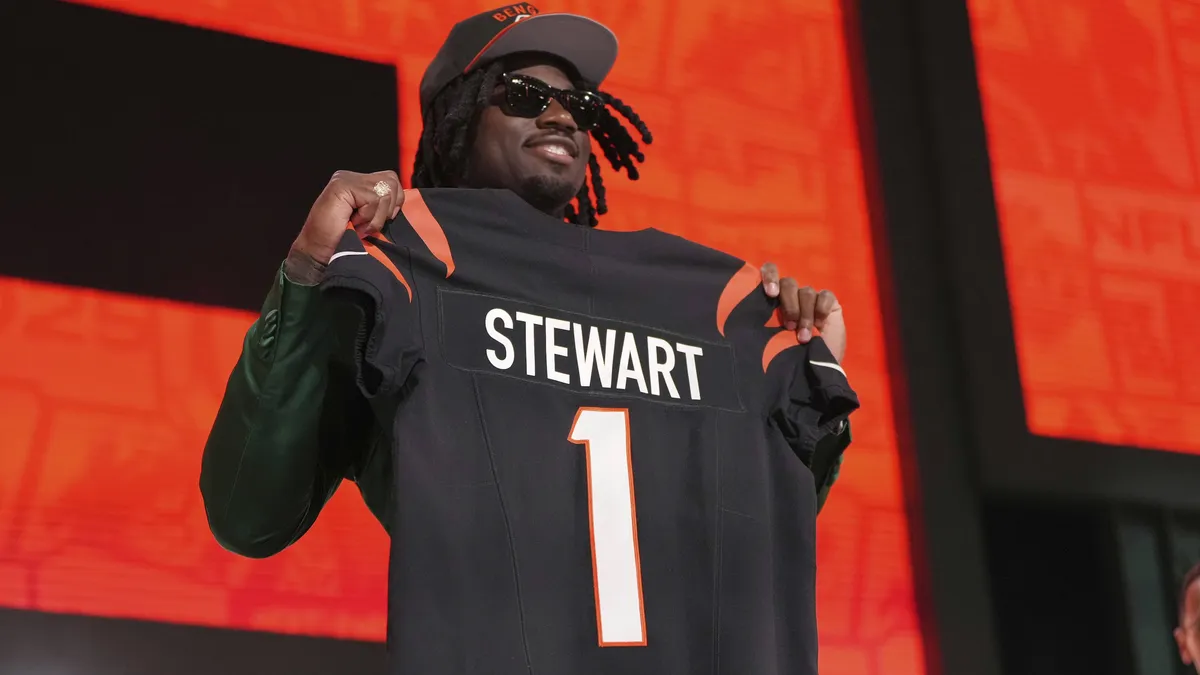
By Wednesday, all 32 NFL teams will have officially opened their training camps for veterans. However, one first-round rookie, Cincinnati Bengals defensive lineman Shemar Stewart, remains unsigned. This situation has raised eyebrows, especially as the Bengals' director of player personnel, Duke Tobin, has publicly placed the blame on Stewart and his representatives.
Tobin stated, “I don’t blame Shemar. He’s listening to the advice he’s paying for,” while also expressing confusion about the advice being given. The crux of the issue lies in the Bengals' desire to include void language in Stewart's contract—something that has not been a standard part of the team’s first-round contracts in the past. As a result, the Bengals find themselves responsible for the ongoing contract stalemate. Their hard-line stance and failure to finalize a contract based on predetermined draft slotting are significant blunders that could affect their season.
As the Bengals grapple with the contract situation involving Stewart, it invites comparisons to other notable contract missteps from the 2025 offseason. Here’s a look at the top five blunders, starting with the Tennessee Titans' costly decision.
The Tennessee Titans made headlines when they signed offensive tackle Dan Moore Jr. to a staggering four-year, $82 million deal. This decision was labeled as one of the worst of the offseason by Bleacher Report's Gary Davenport, who noted that Moore had not demonstrated the skills to justify such a high salary. Despite being a serviceable starter for the Pittsburgh Steelers, Moore struggled last season, registering five penalties and allowing 12 sacks according to Pro Football Focus.
While the Titans needed a left tackle to protect their anticipated top draft pick, quarterback Cam Ward, the timing of the deal raises questions. Compounding the issue, the Titans passed on a potential trade for five-time Pro Bowler Laremy Tunsil, who was available at the time.
Another noteworthy misstep occurred with the New York Jets, who delayed signing cornerback Sauce Gardner until July. After a strong start in his career, Gardner's performance dipped slightly in 2024, leading to Pro Football Focus ranking him 46th among cornerbacks. Despite this, the Jets eventually signed him to a massive four-year, $120.4 million extension.
If the Jets had acted sooner, they might have saved significant money. The market for cornerbacks escalated quickly, with players like Jaycee Horn and Derek Stingley Jr. signing lucrative deals earlier in the offseason. The Jets' delay ultimately forced them to offer Gardner a contract exceeding $30 million annually.
Not every contract standoff is a blunder, but the case of Trey Hendrickson with the Bengals could have significant implications. As the reigning sacks leader, Hendrickson's value has undoubtedly increased, especially given the recent market resets led by other top-tier edge rushers. While the Bengals have made offers, a delay in extending him could cost them in the long run.
The New Orleans Saints faced criticism for extending defensive end Chase Young at $17 million per year, especially given his inconsistent performance since being named Defensive Rookie of the Year. With the Saints navigating a challenging cap situation and entering a potential rebuild, this decision raised eyebrows. Investing in Young, who has a history of injuries, seemed like an unnecessary gamble given the team's pressing needs elsewhere.
The ongoing contract impasse with Shemar Stewart stands out as the Bengals' most significant misstep this offseason. Stewart, being a rookie, is subject to the NFL rookie wage scale, and the Bengals’ insistence on including void language in his contract is unprecedented. This situation reflects poorly on the franchise, particularly as they aim to improve a defense that struggled last season.
Stewart's representatives have resisted the Bengals' demands, and this standoff could have repercussions on the team's performance. The Bengals have a responsibility to negotiate fairly, especially when dealing with their first-round picks. If Stewart's development is hindered due to this contract dispute, the Bengals will have no one to blame but themselves.
As the season approaches, the Bengals' ability to resolve the contract situation with Shemar Stewart will be crucial for their success. The implications of this decision could resonate throughout the franchise for years to come.